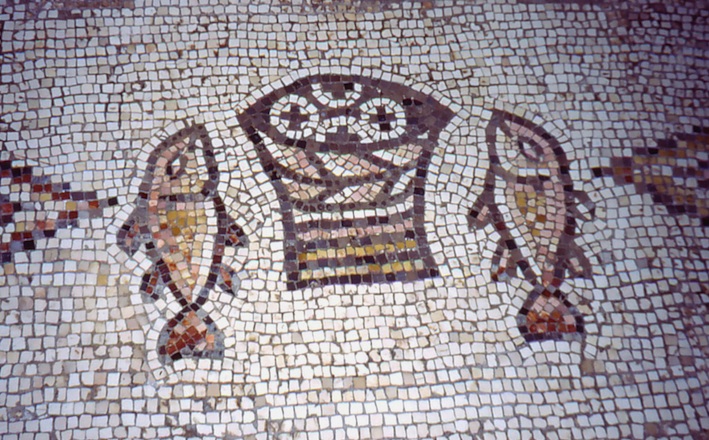Commentary on Romans 9:1-5
The first few verses of Romans 9 are surprisingly self-referential.
Verse 1 contains a three-fold affirmation of Paul’s truthfulness, verse 2 contains a two-fold avowal of grief, and verse 3 expresses a desire to be cut off from Christ using the double self-reference, “I myself.”
Paul regularly inserts himself into the various arguments and assertions that comprise his letters. We should pause and ask why it happens here.
The opening salvo would seem to signal that Paul’s reputation is on the line. Later in Romans we will discover that Paul is somewhat nervous about his upcoming trip to Jerusalem. As he takes an offering from his churches to the saints there, he is worried about those who are disobedient and about whether this gift will be accepted (Romans 15:31).
Although Paul never says so explicitly, it appears that he hopes his mission to Jerusalem will help cement the place of his gentile converts as equal partners with their Jewish brothers and sisters.
But if the people who are marked out by the God-given law are not the people to whom one must belong to be part of God’s family, where does this leave those people?
Paul seems to be defending himself against the charge that his law-free mission to the Gentiles entails a callous rejection of his own people, of Israel. The three-fold defense tells us that this chapter about God’s election is not merely theological, it is also deeply personal.
Paul’s self-defense comes in his twofold repetition of the grief he feels: “great sorrow” and “unceasing anguish” (Romans 9:2).
It is difficult to imagine a more dramatic plunge from the heights of exaltation found in the end of chapter 8 to the depths of pain and agony expressed here (an agony that will work its way to another climactic moment of exaltation by the end of chapter 11). Paradoxically, the source of both is the same: God’s gracious fidelity to God’s people.
The backdrop of Romans includes not only the intramural Christian debates about circumcision and food laws, but also the stark reality that few of the people of Israel have accepted the idea that Jesus is God’s Messiah.
In chapter 8, the claim that God makes upon a people leads Paul to celebrate the surety of final salvation. But this creates the massive problem of what it might say about God that the people of Israel upon whom God had previously set God’s claim had rejected God’s work and were no longer defining the people of God.
This is the tragedy that breaks Paul’s heart and that propels the argument for the next three chapters of the letter (Romans 9-11).
The paradox entailed in Israel’s separation from Paul’s gospel is accented in the list of gifts that are Israel’s by rights. The first two blessings Paul mentions are adoption and glory. In chapter 8, these very things describe the present and future adoption of those who are in Christ by the Spirit (Romans 8:15, 23) as well as the glory that devolves upon such offspring (8:17, 18, 21, 30).
Similarly, when Paul mentions “the covenants” and “the patriarchs” he articulates Israel’s blessings in ideas that have been earlier applied to non-Jewish believers (Romans 4).
The “law” is an aspect of Israel’s story that Paul struggles to explain, as he attempts to guard his Gentile converts from being defined or bound by it, while at the same time he affirms that love of neighbor fulfills the law (Romans 13:9-10).
Ultimately, however, for Paul the law finds its meaning, and is read rightly, when it is read as a witness to the death and resurrection of Jesus (Romans 3:21). When Paul speaks of “the Law” and “the promises,” and affirm that “from them comes the Christ according to the flesh” (9:4-5), he is imagining three parts of the same whole.
In Romans 1:1-3 Paul says that his gospel is (1) promised beforehand by God; (2) about God’s son; and (3) born of David’s seed according to the flesh. Throughout these next three chapters Paul is directly engaging with the consequences of giving a Christological reframing to the hope, faith, and scriptures of Israel.
The fundamental tenant of Paul’s gospel is that the crucified Christ is the resurrected Lord over all. For Paul, it is God (the Father) who raises Jesus, through the Spirit. Paul’s defense of himself is ultimately linked with his defense of God: God is the one who acted both to send God’s Son and to raise that Son from the dead and enthrone him at God’s right hand.
Thus, this section concludes with a somewhat unexpected ejaculation of praise: “God be praised, forever!”
There is some debate over whether Paul intends to say, “Messiah, who is God over all, blessed forever” or, instead, “Messiah who is over all — God be blessed forever!” The second expression is more likely. Paul consistently treats Jesus (the Son) and God (the Father) as two distinct characters in the drama of salvation.
Moreover, the weight of so much of Romans is to direct glory to God for God’s work in sending and raising Jesus the Messiah. This paragraph fits that larger theme by ascribing all of Israel’s gifts to the God who is also the Father of Jesus Christ.
These first five verses of Rom 9 introduce the next three chapters of the letter, which are now widely recognized as the climax of the letter’s argument. The immediately following discussion will wrestle directly with the question of election.
But before he goes there, Paul lays out this basis for the argument: God is the one who has given Israel all its great gifts, God is the one who has fulfilled the promises in Christ, and so God is ultimately worthy of praise. Such will culminate the argument in chapter 11 as well.


August 3, 2014